2022 Annual Report
Celebrating 50 Years of Advocating for Indigenous Peoples’ Rights

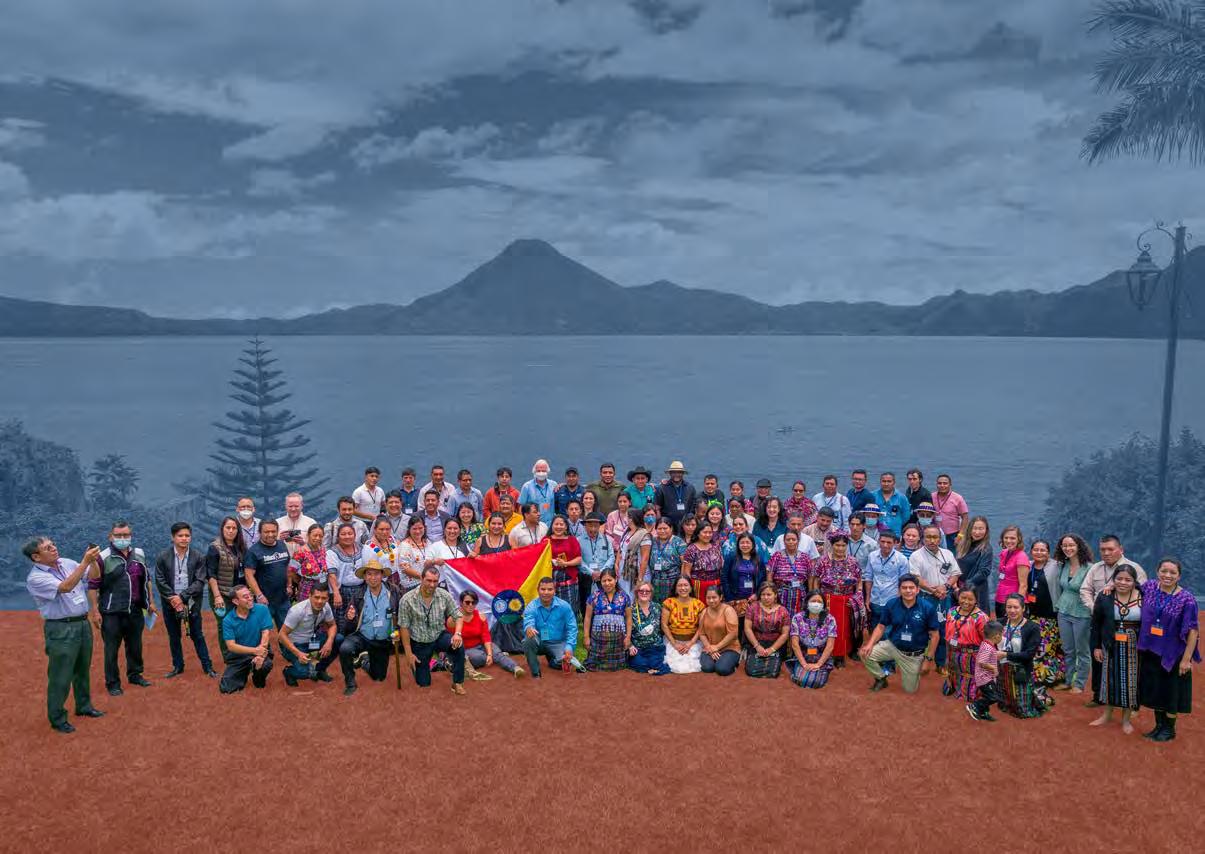

Members of Radio Xob’il Yol Qman Txun in Todos SantosHuehuetenango, Guatemala, one of the four plaintiffs in the historic case, Indigenous Maya Kaqchikel Peoples of Sumpango vs. Guatemala, at the Inter-American Court of Human Rights, which in 2021 affirmed the rights of Indigenous Peoples to community media.
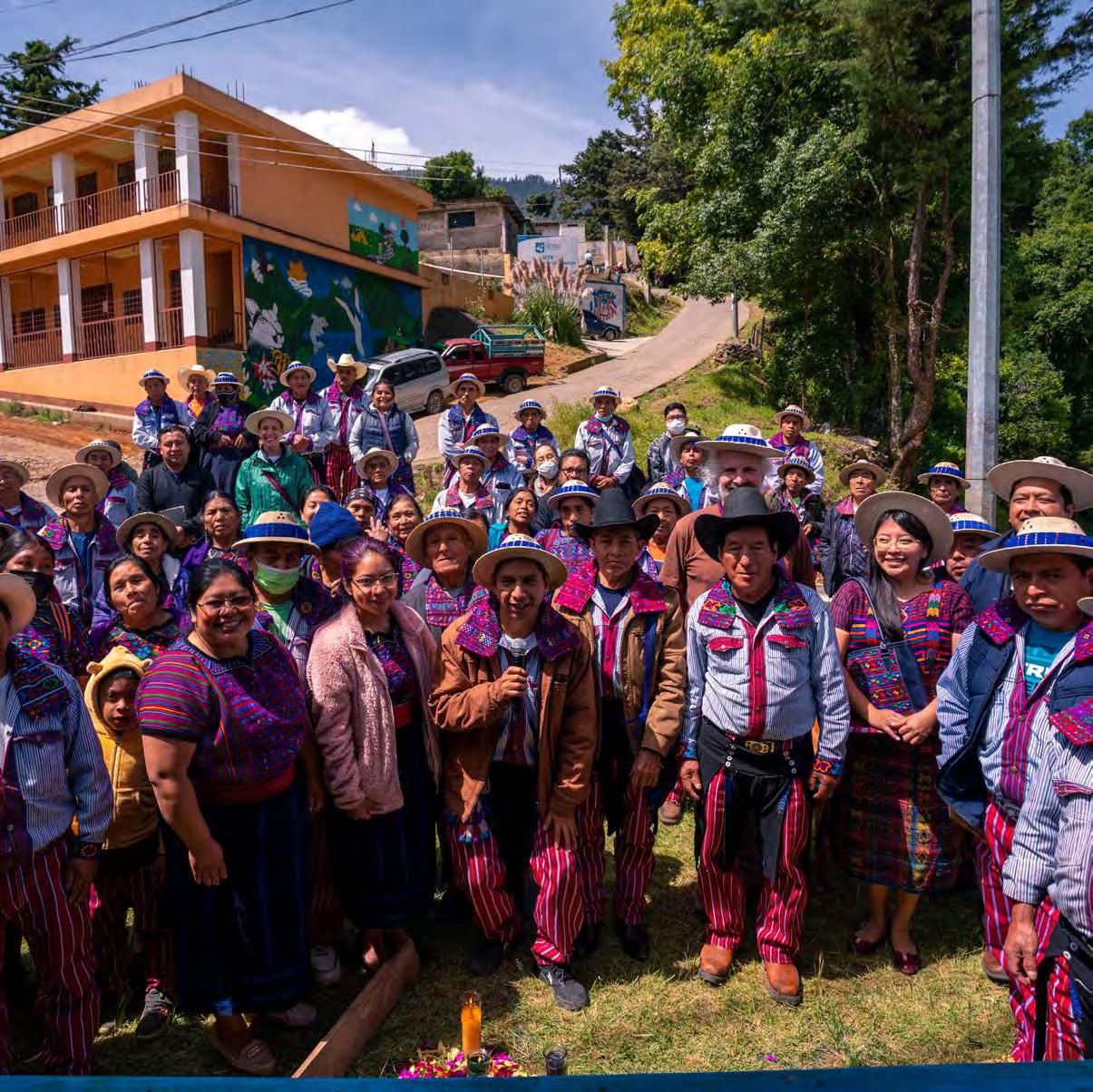
2 Cultural Survival /2022 Annual Report
A Message from Our Executive Director
Dear Cultural Survival Community,
Since its inception in 1972, Cultural Survival has supported thousands of Indigenous communities through joint advocacy campaigns, capacity building, youth fellowships, research, direct grants, publications, and more. We celebrated our 50th anniversary in July 2022 with a gathering of staff, board members, and loyal supporters at the home of Anthony Maybury-Lewis and Chikako Kuno in Cambridge, Massachusetts. Anthony is the son of Cultural Survival’s founders, David and Pia Maybury-Lewis. It felt important to honor our founders in their home where Cultural Survival was born.
Celebrations are important. Through them, we express our gratitude and solidarity with our community who has helped us achieve important victories, carry out our day-to-day work, and inspire us for five decades. These celebrations and your commitment are what create this community.

This year, Cultural Survival accomplished more than even we thought possible as we continued to support grassroots Indigenous solutions to protect, respect, and fulfill the rights of Indigenous Peoples. During the first year of implementation of our 2022-2026 Strategic Framework, we have worked to articulate the connections, intersections, and overlap among the four prongs of our strategy, Advocacy, Capacity Building, Grantmaking, and Communications, along with our primary themes, Land and Livelihoods, Cultures and Languages, Climate Change Solutions, Indigenous Community Media, and the cross-cutting theme of Women and Youth. We have built our organizational capacity by making seven new staff hires during the year, filling in operational gaps and broadening our reach.

3 Cultural Survival /2022 Annual Report
Our Four-Pronged Approach
Our Programmatic Priorities

As part of our strategic planning process, we created a new Gender Balance Policy that aims to implement equitable practices and policies while also curating an environment of diversity, equity, and inclusion for people of all genders both within Cultural Survival and amongst our partnerships. We will continue to streamline an equitable gender balance approach within Cultural Survival by prioritizing projects that center marginalized groups and working to uplift Indigenous women, youth, and our 2SLGBTQ+ relatives according to Indigenous values and protocols self-determined by Indigenous communities.
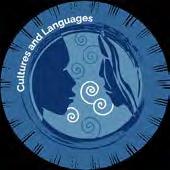
While we had much to celebrate this year, Indigenous communities are facing new challenges of rights violations in the transition to the so-called green economy due to extractive industries and threats from misguided conservation efforts, not to mention ongoing criminalization, violence, discrimination, and marginalization. After five decades, our work to secure Indigenous Peoples’ rights is more important than ever. Your support is crucial to our success.

In Solidarity and Gratitude,

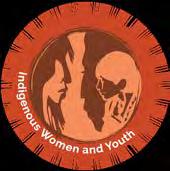


 Galina Angarova (Buryat) Executive Director
Galina Angarova (Buryat) Executive Director

4 Cultural Survival /2022 Annual Report
Cultural Survival Board Chair

Kaimana Barcarse (Kanaka

Hawai’i) at Cultural Survival’s 50th Anniversary Celebration.

Advocacy

Cultural Survival’s Advocacy Program supports Indigenous Peoples around the globe by amplifying grassroots movements to bring awareness to and international pressure about their struggles. We do this while enhancing the capacity of Indigenous communities to demand and assert their rights as outlined in the United Nations Declaration on the Rights of Indigenous Peoples, and always at the invitation of community leaders. Our advocacy work is interwoven across all of Cultural Survival’s programs and is reflected in the holistic, wrap-around support we provide to Indigenous communities globally. Across the organization, through our grantmaking and other areas of work and long-term relationships, we have partnerships with over 600 grassroots Indigenous-led community organizations, collectives, traditional governments, and youth fellows. As Indigenous communities work to implement their rights and selfdetermination, they often encounter external challenges. We assist our network of partners with technical support that strengthens their ability to self-determine their own futures.

6 Cultural Survival /2022 Annual Report
Galina Angarova (Buryat), Cultural Survival Executive Director, making an intervention on the impacts of mining for transition minerals on Indigenous Peoples at the 21st session of the UN Permanent Forum on Indigenous Issues in New York.
Advocacy highlights from 2022:
Drawing on the expertise and experience of Cultural Survival and our partners on the right to self-determination and the right to be consulted, we held a series of gatherings on this topic in 2022. In July, we held a convening on Free, Prior and Informed Consent in Guatemala with community members, leaders, and legal experts. In November, we held an exchange in the Yucatan Peninsula in Mexico, gathering community leaders and representatives from our partner organizations for a rich dialogue on what consultation and consent are and how to ensure that these rights are implemented, with a special focus on the importance of community organization.

We submitted eight reports to UN human rights monitoring mechanisms holding governments accountable for rights violations of Indigenous Peoples’ in Guatemala, South Africa, India, Japan, Brazil, and Russia.
We continued to offer trainings on human rights mechanisms throughout our programs, ensuring that Indigenous communities are aware of international human rights frameworks.


We dialogued with members of the European Parliament on the importance of including Indigenous Peoples’ rights in the European Battery Regulation and Corporate Sustainability Due Diligence Directive.

Members of Cultural Survival, Suffolk University Law Clinic, and Association of Maya Lawyers meeting with members of the Guatemalan Congress to push for the legalization of Indigenous community radio.
Advocating for the inclusion of Indigenous Peoples’ rights in European Due Diligence Laws: Rosas Duran, Perú; Galina Angarova (Buryat), Cultural Survival; Dimitry Berezhkov (Itelmen); Avexnim Cojti (Maya K’iche’), Cultural Survival; Mirtha Isabel Villanueva Cotrina, GRUFIDES, Perú.
Cultural Survival /2022 Annual Report
Convening on Free, Prior and Informed Consent in Panajachel, Guatemala.
CULTURAL SURVIVAL AT UNFCCC COP27




AND CBD COP15

Five members of our staff and an Indigenous activist partner comprised Cultural Survival’s delegation COP27 in Egypt. We organized and/or participated in five side events on topics including climate financing, the “green” energy transition and transition minerals, violence against and criminalization of Indigenous defenders, and Indigenous women-led movement building. We interviewed dozens of Indigenous leaders and delegates who shared their wisdom and solutions for climate change and reported on the negotiations and resulting decisions. We have produced videos, radio programs, and articles, and are working on a toolkit to support Indigenous communities in navigating international spaces. We also had a delegation of two staff members and a consultant at the Convention on Biological Diversity COP15 in Montreal in December 2022 participating in the negotiations and reporting on outcomes.

Cultural Survival /2022 Annual Report
Cultural Survival delegation at COP27
Key Advancements by Indigenous Peoples Accross the Globe event at the COP15 Indigenous Village Pavillion.
Members of the International Indigenous Forum on Biodiversity at COP15.
SECURING INDIGENOUS PEOPLES’ RIGHTS IN THE GREEN ECONOMY COALITION







On August 9, 2022, International Day of the World’s Indigenous Peoples, Cultural Survival successfully launched the Securing Indigenous Peoples’ Rights in the Green Economy (SIRGE) Coalition, a coalition of organizations that seeks to champion a just transition to a low-carbon economy. The Coalition includes Cultural Survival, First Peoples Worldwide, Batani Fund, Earthworks, and Society for Threatened Peoples. As the global demand for the minerals necessary for renewable and green technologies continues to grow, we call upon governments, corporations, and financial decision-makers to avoid the mistakes of the past, specifically to avoid dirty mining and protect the rights and self-determination of Indigenous Peoples around the globe, many of whom live in areas rich in these minerals.

9 Cultural Survival /2022 Annual Report
Just Transition = Indigenous Self-Determination event at the People’s Forum during NYC Climate week organized by the SIRGE Coalition.
Indigenous communities are raising awareness about how the proposed lithium mine at Peehee Mu’huh (Thacker Pass), NV, will impact their ancestral burial grounds, water resources, and wildlife. Photo by Chanda Callao/@Peopleofredmountain.
Capacity Building
Through the Capacity Building Program, Cultural Survival provides opportunities through youth fellowships, trainings, gatherings and community exchanges, international forum participation, networking, one-on-one mentoring, and residency opportunities. Our goal is to increase and strengthen Indigenous communities’ leadership, technical, organizational, advocacy, and sustainability capacities to exercise their rights to freedom of expression, self-determination, and ways of living, and to elevate their cultures and languages.
CAPACITY BUILDING HIGHLIGHTS FROM 2022:
We hosted a series of online workshops for Indigenous women frontline defenders in the Amazon Basin with participants from Colombia, Ecuador, Peru, Bolivia, and Brazil.
We awarded 20 Indigenous Youth Fellowships, supporting 27 youth.
We supported two Indigenous writers as part of our new Indigenous Writers Residency. Conducted two capacity building workshops on radio production in two Indigenous communities in Panama. Trained 20 Ngäbe youth.
20
Indigenous Youth Fellowships awarded

14 Indigenous women trained through a series of 16 workshops
2 Indigenous writers supported as part of our new Indigenous Writers Residency

Cultural Survival /2022 Annual Report
Former fellow Ana Maria Vazquez Hernandez (Maya Tzotsil) with youth doing field work as a part of their fellowship project.
INDIGENOUS YOUTH FELLOWSHIPS



We awarded 20 Indigenous Youth Fellowships to 27 youth for project topics including rights, land defense, gender, decolonization, climate change, and language revitalization. For the past five years, Cultural Survival has supported individuals and groups of youth in building communication and technical skills in radio, audiovisuals, and written documents. Fellowships have allowed youth to build capacities in Indigenous rights, languages, cultures, and Traditional Knowledge. Through a one-to-one mentoring strategy, Cultural Survival accompanies youth from the start to the completion of their projects. Indigenous youth are the future of their communities and developing youth leadership is an integral part of ensuring communities’ well being. While we typically have a balance of genders among our youth fellows, this was the first year that the majority of our fellows were women.

Cultural Survival /2022 Annual Report
Fellow Naila Paulina Cruz López (Zapoteco) interviewing Zapoteco women as part of her fellowship project.
Ngäbe youth receiving training from Guadalupe Pastrana (Nahua), Indigenous Rights Radio Producer, during radio production workshops in Panama.
Thoughts from Youth Fellows
The beauty of this process was learning the oral tradition and identifying that much of the knowledge resides in it, and it is important to make it known to the new generation so that they embrace it and continue the process.”

The youth received training in preparation of communications about what is happening in the territories, how to inform through social media, dissemination of information, use of social networks, [and] what, when, how, and to whom to communicate. All this allowed them to continue reporting the realities of what is happening in the territories of the Choco Indigenous communities so that pertinent actions can be taken. Thanks to the training opportunity, it allowed us to have trained people in communications within our organization.”
- Jhon Andres Duave Serezo (Embera Katio), Colombia


Cultural Survival /2022 Annual Report
- Erika Gómez Jamioy (Inga), Colombia
I wanted to empower the youth of Ladakh, especially the ones who come from remote areas, and give them a platform where they can practice speaking up for themselves and their rights so that they could help themselves first and then others with a collective goal to protect Indigenous culture, tradition, and environment. The fellowship gave many opportunities. I was once invited for an interview at All India Radio in Leh. By doing this fellowship, I became more confident and started believing in myself.”

The Cultural Survival Youth Fellowship has been a true blessing. It has opened my mind and my heart up to so much. This fellowship has positively forced me into a spiritual healing, one that begins at the root of who I am.
I am now able to face the pain and suffering that my people went through and help articulate it in a comprehensible way. It has also allowed me to see the violations of people’s rights, as well as the unseen aspects of life that go unnoticed due to conditioning and separation from our roots.

I am thankful to have been part of Cultural Survival for this short period, as they work with love and courage to remove the poison from the systems of our global Indigenous communities by empowering us as youth.”
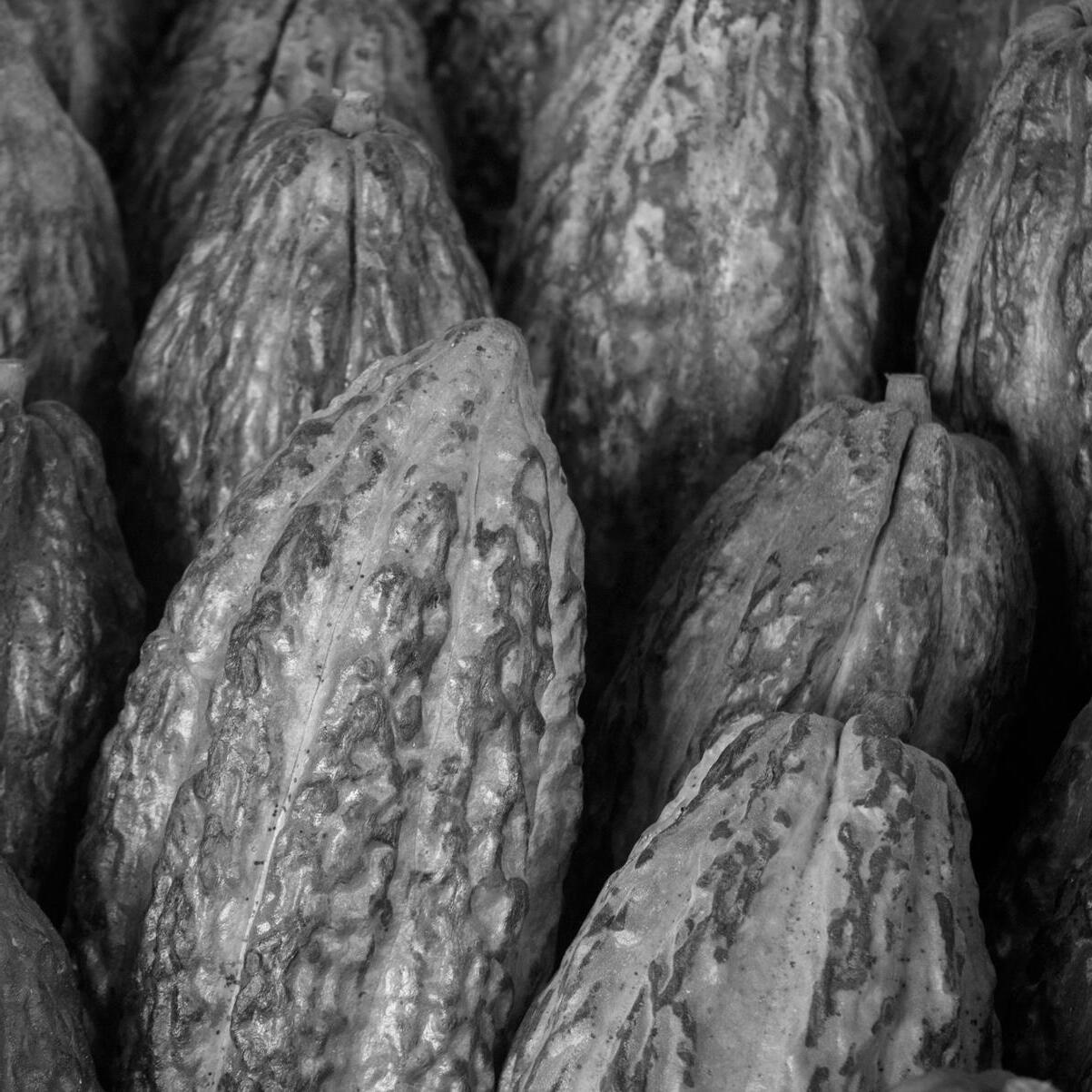
Cultural Survival /2022 Annual Report
-- Ishey Angmo (Ladakhi), North India
- Sharri Cannell (Khoe San), South Africa
INDIGENOUS WRITERS RESIDENCY

We supported two Indigenous writers as part of our new Indigenous Writers Residency. This initiative is a meaningful opportunity for Indigenous writers to continue their creative work, share their expertise, and enhance their knowledge and exposure to writing related to topics important to them and their communities. This year, the writers-in-residence are from Turtle Island (North America). We continue looking for support to expand the opportunity to other regions.
Claudio Ramirez Hernandez is Na Ñuu Savi (Person from the Region of the Rain, Mixtec) born in Santa Maria, California. He co-founded People Respecting Others United by Diversity (PROUD) at the Pacific Pride Foundation, Santa Maria’s local 2SLGBTQ+ nonprofit. PROUD is a safe space for 2SLGBTQ+ youth who experience homophobic attitudes at school or at home. More recently, Claudio served as Office Manager for Comunidades Indígenas en Liderazgo, where he participated in efforts related to their UndocumentedIndigenous Fund and in organizing data for the We Are Here mapping project.

Chenae Bullock is a Tribal citizen of the Shinnecock Nation and descendant of the Montauk Peoples in Long Island, New York, and is also African-American. Chenae is an entrepreneur, pioneer, Indigenous perspective historian, and cultural practitioner. Following her ancestors’ footsteps as whalers and business leaders, the foundation of her work has been based on the resurgence of the traditional canoe culture of the northeast coastal Algonquin communities. She has organized historically sacred paddles in the ancient waterways of the Northeastern seaboard.

14 Cultural Survival /2022 Annual Report
TRAININGS FOR INDIGENOUS WOMEN DEFENDERS IN THE AMAZON BASIN


From June to September 2022, we hosted a series of online workshops for Indigenous women who are frontline defenders in the Amazon Basin. The workshops helped build their technical capacities to continue strengthening their knowledge about their cosmovisions, knowing their territory and relations with the land, defending their rights and land through radio, photography, and social media, while also forming a network of strong and resilient Indigenous women. The 16 virtual sessions engaged 14 Indigenous women defenders of life and land from Colombia, Ecuador, Peru, Bolivia, and Brazil.

15 Cultural Survival /2022 Annual Report
Indigenous women land defenders who participated in the Defense of Life and Land in the Amazon Basin virtual workshops.
Grantmaking

Our grantmaking is implemented through a long-term vision focused on resourcing the global Indigenous Peoples Movement, ensuring the right to self-determination, and the collective rights of Indigenous Peoples. The Keepers of the Earth Fund (KOEF) is an Indigenous Led Fund within Cultural Survival that is managed by Indigenous staff and designed to support Indigenous Peoples’ community self-determined development projects. Since 2017, we have supported 238 projects in 38 countries through small grants and wrap-around support. In 2022, we celebrated a milestone of $1 million provided in small grants directly to Indigenous communities, collectives, organizations, and traditional governments to support projects designed by them and in accordance with their Indigenous values.

The Indigenous Community Media Fund provides opportunities for Indigenous community radio stations to strengthen their broadcast infrastructure and systems while providing training opportunities to their community journalists through a participatory and dynamic grants program. With years of experience coordinating capacity building efforts through workshops, conferences, radio station exchanges, and supporting advocacy efforts to legalize and democratize community media, Cultural Survival elevates the experience, assets, and expertise of the communities that we partner with. We believe that it is crucial to listen and respond to the self-determined needs of Indigenous communities in order to provide support that is sustainable, and most importantly, pertinent, to their needs.

16 Cultural Survival /2022 Annual Report
Community visit to KOEF grant partner Comunidad Tiquipa (Aymara) in Bolivia
Grantmaking highlights from 2022:
The Keepers of the Earth Fund supported 66 community-based projects in 20 countries in climate change mitigation, food sovereignty, language and art revitalization, and land defense.

Our KOEF staff visited 46 communities (current and potential partners) in 2022.
Our Indigenous Community Media Fund supported 24 media projects in 16 countries.

66 community-based projects in climate change mitigation, food sovereignty, language and art revitalization, and land defense funded
46 communities visited by KOEF staff in 2022
24 media projects in 16 countries supported by the Indigenous Community Media Fund

75 communities visited in 8 countries by Indigenous Community Media Program staff
 Community visit to KOEF grant partner Asociación de arte y cultura Maya Itz’at (Maya Kiche) in Guatemala.
KOEF grant partners from Comuna Playa de Oro (Afrodescendiente) in the forest they protect in Ecuador.
Community visit to KOEF grant partner Asociación de arte y cultura Maya Itz’at (Maya Kiche) in Guatemala.
KOEF grant partners from Comuna Playa de Oro (Afrodescendiente) in the forest they protect in Ecuador.
Thoughts from Our Grant Partners
We had the opportunity to interview community members and we felt empowered when we heard mothers of little children willing to vaccinate them to protect them against Covid. Vaccinating children has been a very difficult task and listening to these words from our community gave us a rewarding feeling. Our organization feels thankful that our community trusts us and listen to us when we asked them to vaccinate their kids.”
- Radio Mixteco, USA, Indigenous Community Media Fund Grant Partner
We learned that radio continues to be an essential means of communication and learning for Indigenous communities, strengthening our community identity. Mastering information and communication technologies, as well as digital media, has been crucial for the pre-production, production, and post-production of our radio programs. Moreover, among the good practices, we have learned to revalue our Purépecha cosmogony, our sesi irekani (good living), and to defend our nana-echeri (Mother Earth). All of this is complemented by learning about our rights as Indigenous women.”
- Radio Fogata, Mexico, Indigenous Community Media Fund Grant Partner
The knowledge and skills gained by the project participants have proven valuable for improving the quality of radio broadcasts. At the same time, these learnings have allowed them to refine their professional activities in roles such as educators and communicators. Moreover, they have acquired skills in handling modern equipment that facilitates the preparation of content and online radio broadcasts.”
- Maranki Radio, Peru, Indigenous Community Media Fund Grant Partner


Community radio is the next big agenda to empower Indigenous People in remote parts of the world and this will enhance communication rights and preserve our endangered cultures.”
- Ferreti Radio, Kenya, Indigenous Community Media Fund Grant Partner
Cultural Survival /2022 Annual Report
Ngäbe youth attending radio production workshops conducted by Cultural Survival’s team in Panama.
The project directly contributed to improving the radio’s technical capacity, as the old transmitter was not providing smooth service, hindering our ability to serve our communities, and reach and serve local communities, primarily those speaking Chamling, Bantawa Rai, Tharu, Magar, and Tamang languages.”
- Radio Triyuga, Nepal, Indigenous Community Media Fund Grant Partner
Our participants have shared that after the training, they have been keeping track of their local news more than before the training and have been interacting with the elders in their community as well... the training was beneficial for the creators as they are now able to use the skills learnt for creating new designs and few of them are regularly creating plus posting content on their personal social media handles and collaborating with others creators in showcasing culture and traditions of India’s Indigenous communities.”
- Radio Triyuga, Nepal, Indigenous Community Media Fund Grant Partner


Thanks to Cultural Survival’s support, we are becoming more aware of our rights and have assumed commitments to defend and fight for land, life, and dignity.”
- Sub Concejo Tsimane’ del Sector Yacuma, Bolivia, KOEF Grant Partner

This process was very good for us. It has helped us a lot since we have gone through very hard months. The hope of being able to recover our community farm, reforest the community with native and fruit trees, as well as recover the cultivation of our medicinal plants is of vital importance for the entire community, especially for us women, youth, and children.”
- Comunidad Santa Rosa, Paraguay, KOEF Grant Partner
Cultural Survival /2022 Annual Report
We want to give our infinite gratitude to Cultural Survival for granting us these funds. They have helped us to bring together the highest authorities of the federation and the communities to discuss issues of interest and organize ourselves in defense of our ancestral lands in the face of the threat of a highway, as well as to involve strategic institutions in order to continue advancing in this fight.”
- Federación de Comunidades Nativas Maijun, Perú, KOEF Grant Partner
I am proud to have passed on the little Traditional Knowledge that I had. I am glad I did not keep it. Now the next generation will know.”
- Rupunau Traditional Knowledge Facilitator, South Rupununi Conservation Society, Guyana, KOEF Grant Partner

We believe that projects of this type and scale are essential to trigger larger processes that ultimately result in a better quality of life for Indigenous communities.”
- Arturo, San Pedro Jilotepec, México, KOEF Grant Partner
The opportunity to have these funds is very significant because in these times, through these means, we can move and monitor where the leaders can have a presence. Working collectively, we feel stronger.”
- Asociación Paĩ Reta Joaju, Paraguay, KOEF Grant Partner

Sunuwar Welfare Society is thankful to Cultural Survival for its continuous support. We don’t have any other funding [than] small funds such as membership from the community and [volunteer support]. With funding from Cultural Survival, we could make impactful results on our community’s rights. Next, we want to bring a group of lawyers to collect affidavits, collect further evidence, and file a case against the hydropower projects.”
- Sunuwar Welfare Society, Nepal, KOEF Grant Partner

Cultural Survival /2022 Annual Report
A welcome ceremony during a community visit with KOEF grant partner Sunuwar Sewa Samaj (Sunuwar) in Nepal.
Communications
With 50 years of experience working with Indigenous Peoples and building a robust global network, we recognize firsthand the importance of Indigenous media and communications. Indigenous-produced programming strengthens Indigenous Peoples’ capacity to claim their rights and enables access to essential information and broadcasting in Indigenous languages that ensure widespread understanding and cultural continuity. Cultural Survival’s communications have been a stronghold for many years, connecting Peoples, movements, and organizations through storytelling across landscapes, waterways, and issues locally and globally. Through our communications, we work to build awareness, reclaim the narrative, and shift paradigms, consciousness, and agency. We uplift and amplify Indigenous Peoples’ voices and visions through a variety of media platforms, including our award-winning Cultural Survival Quarterly magazine, the Indigenous Rights Radio Program, podcasts, our website and database of articles from 46 years of publishing on Indigenous issues, webinars, social media, and more.





Cultural Survival /2022 Annual Report
Communication highlights from 2022:
We launched a new website in both English and Spanish with updated design and functionality.
Our website had 3.85 million visits by 2.53 million users during the past year.
We published 4 issues of Cultural Survival Quarterly and organized related public webinars focused on Indigenous Climate Change Solutions, Securing Indigenous Rights in the Green Economy, Indigenous Stewardship, and Decolonizing Gender.


Our Indigenous Rights Radio Program produced over 431 programs in 16 languages, distributed to 831 radio partners.



3.85 million visits of our websites by
2.53 million users in 2022
4 issues of Cultural Survival Quarterly printed
431 programs produced by our Indigenous Rights Radio Program

22 Cultural Survival /2022 Annual Report
Indigenous Rights Radio staff in action in New York, Brazil, Peru, and Egypt.
Cultural Survival Bazaars

The Cultural Survival Bazaars are the organization’s longest running program and one for which we are best known in New England, having developed a base of over 10,000 devoted supporters who return year after year to shop. We have long standing relationships with our Indigenous and fair trade vendors, many of whom rely on the Bazaars to provide consistent income for their families and wider communities. The Bazaars give Indigenous entrepreneurs a space to network and earn income that directly supports their traditional livelihoods and economic sovereignty and provide an opportunity to strengthen cultural exchange and relationship building between Indigenous artists and the public in New England.
Our Bazaar program has faced many challenges since the start of the pandemic. As a result of ongoing COVID-19 cases in the countries of our vendors, as well as complications due to travel restrictions, closures of U.S. visa processing centers, and vaccine eligibility, we made the decision to cancel our in-person Bazaars for the 2022 season. Cultural Survival also completed a reassessment on the sustainability of the Bazaar events during this pause that allowed us to reflect on the importance and strategies to sustain Bazaars in the future. The pandemic deeply impacted the livelihoods of our Bazaar artist partners and other Indigenous artisans throughout the world. Art-making as a livelihood relies on art-buying, putting financial strain on the thousands of Indigenous artists who benefit from and rely on selling art at the Cultural Survival Bazaars each year.
In place of marketing Indigenous-made items for sale, this year we continued to focus on amplifying Indigenous artists’ voices through the regular production of artist spotlight articles and podcast episodes. Produced in collaboration with our Indigenous Rights Radio Program, we released nine podcast episodes featuring Bazaar artists from Latin America. In our podcast series, “Hecho a Mano” (Made by Hand), we interview the artists to learn about their creative process, materials, inspiration, and how their work is rooted in their culture and meaningful to their community. We also feature a vendor directory on Cultural Survival’s website to help the artists continue to sell from their own online platforms.
Cultural Survival is committed to resuming the Bazaars in December 2023 to serve the communities with whom we have long standing relationships. During the 40+ years in which the Bazaars ran without pause, we have innovated, experimented, and significantly expanded them.




Cultural Survival /2022 Annual Report
2022 Financials
INCOME
$5,475 Other
$977,394 Donations from individuals
$5,059,342 TOTAL INCOME
$4,429,934 TOTAL INCOME
$4,076,473 Grants from Foundations
24 Cultural Survival /2022 Annual Report
EXPENSES
$345,028 Core mission support: Finance, HR & governance
$345,028 Core mission support: Fundraising & Partnership
TOTAL EXPENSES
$2,899,043
$951,807 Grantmaking
$119,430 Bazaar
$435,664 Advocacy
$251,615
Capacity building
$622,868
Communications
25 Cultural Survival /2022 Annual Report
Our Team in 2022
STAFF
Galina Angarova (Buryat), Executive Director
Mark Camp, Deputy Executive Director
Avexnim Cojti (Maya K’iche’), Director of Programs
Daisee Francour (Oneida), Director of Strategic Partnerships and Communications (through May 2022)
Monica Coc Magnusson (Q’eqchi Maya), Director of Advocacy and Policy (through September 2022)
Verónica Aguilar (Mixtec), Keepers of the Earth Fund Program Assistant
Michael J. Beeler, Individual Donor Manager
Bryan Bixcul (Maya Tz’utujil), Executive Assistant
Jess Cherofsky, Advocacy Program Manager
Michelle de León, Executive Assistant
Roberto De La Cruz Martínez (Binnizá), Information Technology Associate
Danielle DeLuca, Senior Development Manager
Shaldon Ferris (KhoiSan), Indigenous Rights Radio Coordinator
Sofia Flynn, Accounting and Office Manager
Nati Garcia (Maya Mam), Capacity Building Manager
Cesar Gomez (Maya Pocomam), Community Media Program Coordinator
Adriana Hernández, (Maya K’iche’), Emerging Strategies Coordinator
Natalia Jones, Advocacy Associate
Mariana Kiimi (Ñuu Sàvi/Mixtec), Advocacy Assistant
Edson Krenak Naknanuk (Krenak), Lead on Brazil
Dev Kumar Sunuwar (Koĩts-Sunuwar), Community Media Grants Program Coordinator
Danae Laura, Bazaar Program Manager (through April 2022)
Bia’ni Madsa’ Juárez López (Ayuuk ja’ay and Binnizá), Keepers of the Earth Fund Manager
Marco Lara, Social and Digital Media Coordinator
Kevin Alexander Larrea, Information Technology Associate
Jamie Malcolm-Brown, Communications and Information Technology Manager
Amparo Monzón (Maya K’iche), Program Assistant
Cat Monzón (Maya K’iche’), Indigenous Community Media Youth Fellowship Coordinator (through May 2022)
Diana Pastor, (Maya K’iche’), Central América Media Coordinator
Guadalupe Pastrana (Nahua), Indigenous Rights Radio Producer
Agnes Portalewska, Senior Communications Manager
María del Rosario “Rosy” Sul González (Kaqchiquel Maya), Indigenous Rights Radio Program Manager
Sócrates Vásquez García (Ayuujk Jääy, Pueblo Ayuujk), Community Media Program Manager
Miranda Vitello, Development Coordinator
Candy Williams, Human Resources Manager
Raquel Xiloj (Maya K’iche), Community Media Grants Coordinator
Pablo Xol (Maya Qʼeqchiʼ), Design and Marketing Associate
26 Cultural Survival /2022 Annual Report
BOARD OF DIRECTORS

Kaimana Barcarse (Kanaka Hawai’i), Chair
John King II, Vice Chair
Steven Heim, Treasurer
Nicole Friederichs, Clerk
Evelyn Arce Erickson (Muisca)
Valine Brown (Haida)

Kate R. Finn (Osage)
Laura R. Graham
Stephen P. Marks
Mrinalini Rai (Rai)

Tui Shortland (Māori)
Jannie Staffansson (Saami)
Stella Tamang (Tamang)
INTERNS AND VOLUNTEERS
Katrina Arriola
Dorothea Bauer
Julia Chase
Ellie Collins
Sarah Hume

Rebecca Kirkpatrick
Mariana Navarrete
Lauren Nolan
Paola Oberhauser
Christian Pillalaza
Kathryn Sullivan
Katya Yegorov-Crate
Cultural Survival /2022 Annual Report
CS Staff visiting a community radio station.
Cultural Survival delegation at COP27.
Joenia Wapichana (Wapixana), President of FUNAI with Edson Krenak (Krenak), Cultural Survlval Lead on Brazil
Thoughts from Our Interns
I am so very grateful for the opportunity to work with such an incredible organization like Cultural Survival. I have learned so much during my time here. Thank you so much for this opportunity and for allowing me to extend my internship. It’s truly been a wonderful experience.”
- Rebecca Kirkpatrick
Thank you so much for the opportunity to intern with Cultural Survival this semester. I appreciated being able to engage more deeply with different Indigenous communities and learn about the contemporary events [that] affect them. I also enjoyed being able to attend staff meetings and intern meetings to learn more about the work that Cultural Survival does and how it’s organized. The opportunity to combine my background in Spanish and linguistics with my interest in Indigenous cultures and language documentation/ revitalization has not only helped me grow both personally and professionally this semester, but also strengthened my interest in working with Indigenous communities throughout my career.”
 - Lauren Nolan
- Lauren Nolan
I wanted to say thank you for everything as I wrap up my time interning with Cultural Survival. It has been one of the most meaningful experiences of my college years, and I look forward to seeing all the ways in which the organization continues to grow. It has been so wonderful to meet everyone and work on some amazing projects. From the very first interview I had, I knew that this was a really special place to work. I have the highest praises for the Cultural Survival team and the work that this organization does. It’s incredible.”
- Sarah Hume
I’m glad to have been able to support Cultural Survival’s important work as an intern this past summer. Upon concluding my internship at Cultural Survival, I began working as a Court Clerk with the Mashpee Wampanoag Tribal Court, which has given me some insight into Tribal jurisdiction and the relationship between Tribal law and state/ federal law and how that relationship impacts a Tribe’s sovereignty. I’ve decided to apply to law school so that I can further understand this relationship with the hopes of participating in efforts to increase Tribal sovereignty and to rematriate land to Indigenous stewards on Turtle Island. My internship at Cultural Survival provided me with valuable experience, and I would love to work and/or collaborate with the organization in the future.”
- Julia Chase
Cultural Survival /2022 Annual Report

Cover caption: In July 2022, Cultural Survival organized a Q&A session about the 2021 Inter-American Court of Human Rights case Indigenous Maya Kaqchikel Peoples of Sumpango vs. Guatemala decison with representatives from the communities and community radio stations. More than 80 representatives from community radios and Indigenous authorities participated.

Massachusetts Ave.
MA 02140 617-441-5400
@culturalsurvival @CSORG
2067
Cambridge,
www.cs.org
@culturalsurvival














 Galina Angarova (Buryat) Executive Director
Galina Angarova (Buryat) Executive Director












































 Community visit to KOEF grant partner Asociación de arte y cultura Maya Itz’at (Maya Kiche) in Guatemala.
KOEF grant partners from Comuna Playa de Oro (Afrodescendiente) in the forest they protect in Ecuador.
Community visit to KOEF grant partner Asociación de arte y cultura Maya Itz’at (Maya Kiche) in Guatemala.
KOEF grant partners from Comuna Playa de Oro (Afrodescendiente) in the forest they protect in Ecuador.




























